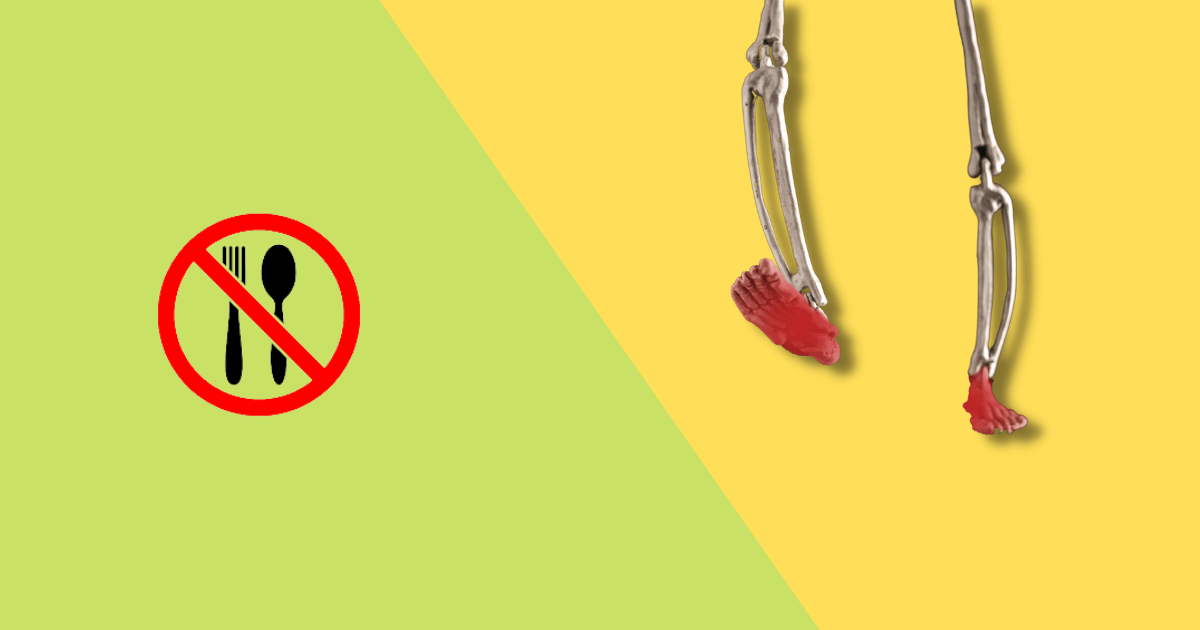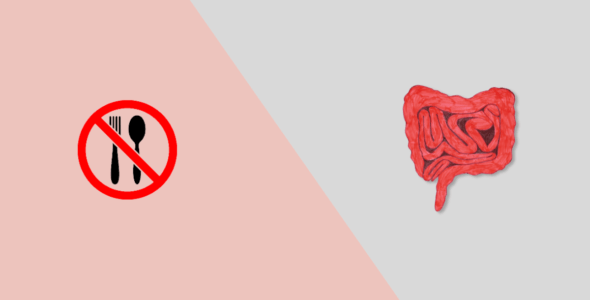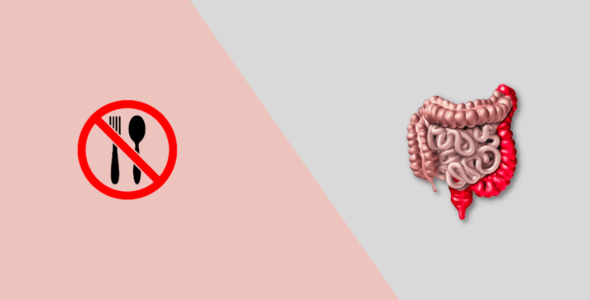What foods to avoid with gout
Table of contents
Gout is a form of arthritis that develops if you have too much uric acid (hyperuricemia) in your body. When high levels of uric acid increase in your body it can lead to joint pain. What you eat and drink will not only affect your symptoms of gout but also how severe the symptoms will be. High-purine foods will cause more gout symptoms and problems than foods low in purine.
Here we will discuss what gout is, its symptoms, what you can do to reduce your risk of gout flare-ups and what foods you should avoid.
What is gout?
Gout is a type of arthritis that develops when you have too much uric acid in your body. Uric acid is made from purine a substance found in many different types of foods. Consuming foods containing high levels of uric acid cause uric acid levels to increase in your body and urate crystals to form in your joints. This build-up of crystals in your joints causes the symptoms of gout, namely pain and inflammation.
Even though no eating plan will prevent flare-ups completely, a good diet will help you manage your gout by reducing the amount of purines you eat. You should be aware that as we are all unique and different, what changes in food and diet work for one individual may not work for another. Your diet plan will need to be tailored to your own unique needs.
Symptoms of gout
The pain and inflammation experienced in gout are caused by urate crystals entering joints, fluids, and tissues in your body. The pain and inflammation may affect only one joint, most often the big toe, or more often multiple joints at the same time.
The symptoms of gout may include severe joint pain, joint stiffness or swelling, redness at the affected site, feeling tired, and mild fever.
Be aware, gout may not always cause the symptoms of pain and inflammation immediately but instead may develop over time and get worse if not treated. Your doctor will be able to better help you recognize and understand your symptoms, diagnose the cause of your symptoms, and discuss the treatment options available, such as changes in your diet.
Does weight loss help to prevent gout
It is a well-known fact that being overweight can cause excess stress on your joints, especially your lower limbs. This can cause pain and inflammation, and more damage to joints in your knees and feet. It has been calculated that being just 10 pounds overweight will increase the force on your knees by 30 to 40 pounds. The extra load has also been shown to stimulate the release of more chemicals that can cause more joint damage.
If you have joint pain induced by excess weight losing pounds and taking the stress off your joints will ease your symptoms. Your body can not reverse arthritis but, losing excess weight can help your joints feel better and prevent further damage. A review of studies has shown that losing eight pounds or more will lead to reductions in your uric acid levels and reduce your risk factors for gout attacks if you are overweight or obese.
Treatments for gout
Treatment options for gout include pain relief medications such as nonsteroidal anti-inflammatory drugs (Ibupak), colchicine (Colcrys), and steroids (Medrol), as well as drugs such as allopurinol to reduce uric acid levels. You may also use topical treatments for local relief. Treatments such as ibuprofen gel may be helpful.
Vitamins such as folate, vitamin B6, vitamin B12, or vitamin C supplements may be recommended to you during a flare-up. You may also take methotrexate during a flare-up. Talk to your doctor about taking folic acid if a healthcare professional prescribes methotrexate.
Exercise is also a useful treatment. In addition to its obvious health benefits, exercise will help you reduce your weight and take some of the excess stress off your weight-bearing joints (feet, ankles, and knees). Consider exercises such as swimming or riding a bike, as these types of exercises are especially good options for patients with gout as they don’t put as much pressure on your weight-bearing joints.
What foods should I avoid with gout?
The general principle for any diet plan is to eat a healthy balanced diet. Foods that trigger gout attacks and cause gout flare-ups are high in purines. If you have gout you should avoid foods high in purine, these include:
- Sweet sugary foods such as sugary drinks like soda, cereal, ice cream, candy, chocolate, some fruit juices, and high fructose corn syrup
- Processed foods – chips, white bread, cakes, cookies
- High-fat dairy products – full-fat milk, butter, cheese
- Red meat – beef, lamb, and pork. Limit your serving size if you can not completely avoid these foods
- Organ meat – liver, kidney, thymus, or pancreas (these are often called sweetbreads)
- Game meats – venison and wild-caught birds
- Yeasts
- Alcoholic beverages – beer and grain liquors like vodka and whiskey should be consumed in moderation. Speak to your healthcare advisor for advice
- Seafood – shellfish like shrimp, lobster, mussels, scallops, anchovies, mackerel, and sardines. The health benefits of eating fish need to be considered. Moderate portions of fish can be part of a healthy gout diet and avoiding all types of seafood may have detrimental effects on your general health
What foods can I eat with gout?
As stated previously a gout diet typically follows a healthy diet. Low-purine diet options include:
- Lean meat and poultry such as chicken and turkey
- Low-fat dairy – yogurt, skimmed milk, low-fat cheeses
- Lentils
- Complex carbohydrates – fruits, vegetables, and whole grains (whole grains can also help to reduce the risk of other health conditions such as heart disease, stroke, type 2 diabetes, and obesity). Studies have shown that vegetables such as asparagus and spinach do not increase the risk of gout
- Wholegrain foods such as wheat germ, bran, and oatmeal
- Nuts, peanut butter, and grains
- Fatty and oily foods
- Potatoes, rice, bread, and pasta
- Eggs
What drinks are safe during a gout flare-up
Make sure you drink plenty of fluids, about 8 to 16 cups a day, with at least half of what you drink being water. Drinks that contain Vitamin C can also help reduce uric acid levels, but be careful. Studies have shown that the high sugar content in certain drinks such as orange juice may actually increase your uric acid levels.
Moderate consumption of coffee has also been shown to cut your uric acid levels too. Talk to your healthcare advisor about your consumption of coffee, especially if you have other medical conditions.
Beer and distilled liquors such as whiskey and vodka are linked with an increased risk of gout and recurring gout attacks. You should avoid alcohol during gout attacks, and limit alcohol consumption between attacks. Speak to your doctor for advice about what is considered healthy alcohol consumption.
Will going gluten-free help with my gout?
Research suggests that eating gluten-free could improve your gout symptoms. Gluten-free food includes buckwheat, rice, quinoa, polenta, fresh meat, fresh fish, eggs, milk, cream, crème fraîche, and natural yogurt. You’ll notice that some of the foods you should avoid are listed here. This can be quite confusing, but as we said before we are all different and what works for me may not work for you. It’s always best to consult with your doctor or dietitian if you are considering a gluten-free diet.
A handy tip is to keep a food journal to help identify the foods that are your triggers. Essentially those foods that bring about a gout attack. Also, keeping track of any stressful events or periods of anxiety that bring about flare-ups may be useful. Discuss your condition with your doctor or dietitian to develop a healthy eating plan and to discuss other lifestyle changes you can make to manage your condition better.
Medically reviewed
A medical professional has reviewed this article.


Jamie Winn, PharmD
Jamie Winn, PharmD
Dr. Jamie Winn received his Doctor of Pharmacy in 2002 from the University of South Carolina College of Pharmacy, Columbia, SC. Jamie is a medical reviewer for NiceRx.



